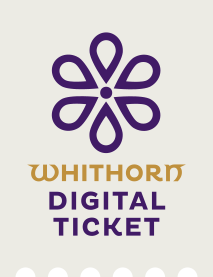This statement is intended to express the Whithorn Trust’s policy regarding access to its collection and to its visitor centre, but also its commitment to providing access to opportunities for its staff and to the employment it has to offer.
Statement of General Principles
The Whithorn Trust believes that all people and every sector of the community have the fundamental right to engage with the history of Whithorn, comprising the archaeological record dating from the Early Christian era to the golden era of mediaeval pilgrimage and the later development of the burgh. This includes the objects the Trust displays, conserves and holds with partners. We recognise that there are many types of barrier to access ( including physical, financial and cultural barriers) but are committed to making all aspects of our activities as fully accessible as our resources allow, including access to buildings, collections, events, exhibitions, learning and to our staff and volunteers as well as visitors. The Trust is committed to increasing public access to the collection and information associated with those collections, to increase knowledge and understanding of the items the Whithorn Trust holds and the cultural heritage of Whithorn.
In pursuit of these goals, the Trust will enable physical access, access to information and scholarship, and engagement with the collection for all age groups and abilities through a variety of media. The Whithorn Trust will adhere to all national and international statutes of law, including specifically in relation to access, but not exclusively the Equality Act 2010, Data Protection Act 2018 and the Disability Discrimination Act 2005. This policy is consistent with the Whithorn Trust’s Equalities Policy.
- Access to the Visitor Centre and collection: Acknowledging that an Access Audit of the Whithorn Trust’s building ( and more recent visit by DG Voice (2020)), which dates to 1901 and was converted to museum use in around 1990, was highly critical of access for those with physical disabilities, the Trust will continue to make alternative provision where possible, using digital technology and improving its physical facilities. Future projects under consideration, such as a new Museum site, provide opportunities to fulfil the Trust’s aspiration to design and build a completely accessible museum in which all forms of access are embedded from the start of the design process. We will adopt best practice guidance for interpretation including exhibition texts, a wide range of different sensory experiences and interactive programmes. The input of designers and advocates for disabled people will be sought from the start of such projects.
- Learning and intellectual access : The Trust seeks to enable the widest possible audiences in access to its scholarly research. This includes offering a variety of modes of access ( online, in-person). We acknowledge that people have different learning styles and we will provide interpretation taking into account people’s varied needs and preferred learning styles by adopting a variety of interpretative methods and educational opportunities. This includes providing opportunities which appeal to a variety of different age-groups from Nursery to adults engaging in lifelong learning, from complete beginner to professional archaeologists. We will promote all our activities and collections using accessible means of communication, including sub-titling recorded lectures. We acknowledge and recognise cultural differences and seek to represent varied cultural experiences and issues through our programmes and exhibitions. This includes awareness of the sensitivities our Collection may raise, including our human remains assemblage, and use of language which is more inclusive (such as dating CE and BCE, rather than BC and AD). We will consult regularly with our audiences and take into account our non-users to expand access to our facilities, services and collections.
- Financial access : We will aim to minimise financial barriers to the use of sites and the collections wherever possible, by keeping our admission affordable while maintaining a sustainable organisation; we will offer free events and Open Days during each year to enable universal access. We will support our staff by paying the Real Living Wage and provide paid opportunities for professional development. We will provide online access to lectures free of charge and continue to provide free access for Dumfries and Galloway schools.
- Safety in the building : The Trust takes account of the needs of visitors with disabilities in all safety procedures; this includes testing for audible alarms in areas specifically used by disabled people. It is the policy of the Trust to enable all occupants of the building to be evacuated at the same time in an emergency. The Trust strives to provide information in forms that are accessible to all visitors and to cater for most needs. Signage is designed and situated to be as legible as possible.
- Employment and training : The Trust aims to ensure that its employment practices do not discriminate against people with disabilities and maintains a system for monitoring and reviewing procedures, such as unconscious bias checkers in job advertisements. The Trust aims to provide Equality and Diversity training for all staff. We will work to diversify the demographic profile of staff and volunteers.
March 2023

